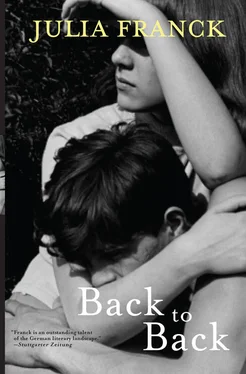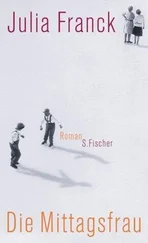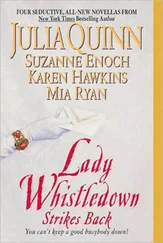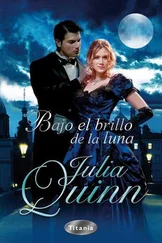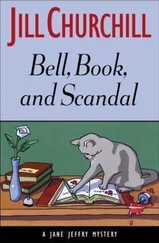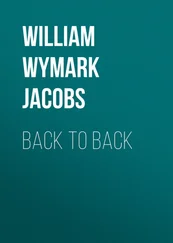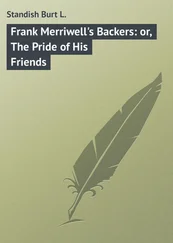It’s thrown away, burnt. Thomas felt a leaden sensation in the pit of his stomach, his limbs were heavy, he needed a break.
When he was down in the yard on his own, smoking a cigarette, he watched two men carrying rubbish buckets out of the surgical department. This way of dealing with human bodies seemed to him barbaric. The unworthiness of it disgusted him. The idea would have seemed ridiculous had there been a level from which he could have smiled down on it. Called to higher things, who could that be? The emptiness of it clung to him like a certainty. A doctor with a stethoscope round his neck came along the path, a surgeon, Thomas suspected, his gait was so proud and self-important, he was smiling so triumphantly to himself, and as Thomas watched him go the doctor shrank to a tiny figure with a certain helplessness in the way he moved, his hands not knowing what to do, clutching a thin file folder, looking without conscious intent through a pair of horn-rimmed glasses for which a bull had probably had to lose part of its body. See the chin, once so defiant / helpless falling on his chest / And the striking Roman nose / pointing sharply nowhere much. Soon, Thomas heard Marie’s voice again, she was sure he’d be allowed to watch an operation. Thomas trod out his cigarette with the sole of his shoe, throwing livers away, cutting out cancerous tumours, taking corpses to the mortuary.
Back in the ward, Thomas found Marie in the corridor carrying the tray in one hand, pulling the trolley along with the other. Unasked, he followed her, caught up with her, walked along beside her. When she stopped outside the room where medicaments were kept and was looking for her key, he leaned against the door frame. He waited, and took the tray from her. She unlocked the door, took her tray back, disappeared into the room. He heard sounds, and closed his eyes. Heard her sliding something open, heard something clinking softly, a snapping sound, probably a cupboard door opening and closing, he heard her putting items down, placing and laying them in position. When she reappeared, she was holding a box of plasters and a small glass bottle of tablets. She closed the door of the room, slipped the key into the pocket of her coat, and went ahead of him.
How old are you?
Marie stopped and tilted her head slightly to one side. Twenty-six. Her eyes gave nothing away.
I’m almost eighteen, he said, and added quietly, I’ll be eighteen in a few days’ time.
A visiting relation came through the big double door in search of her father. Marie told her where to find him, saying she still had medicaments to give out and could go part of the way with her. Thomas waited indecisively, and then went into the nurses’ room. He asked if he could have a short break to go to the lavatory and smoke a cigarette.
Since the turn of the year, since they had buried Grandfather, and Uncle Paul had gone back to faraway America, he had been trying to write him a letter. Maybe there was a solution that an uncle could see from America, whereas here, from inside the Wall, high as it was, you could hardly even see the stars these days. The drafts of Thomas’s letters always began with questions. Not about Uncle Paul’s health. Questions verging on complaints: Why is the world watching us? That was one of them. How can you people out there pass by and see us pacing up and down behind the bars of our socialist dream? Maybe his uncle didn’t care for irony, cynicism or doubt. After all, he himself claimed to have been in the Red Squad during his schooldays in Berlin. So obviously, even if you had origins in communism, you could live in America? Instead of a sender’s name and address, Thomas drew a face on the envelope with the pupils of its eyes consisting of barbed wire in large, spiky tangles. Perhaps his letters were intercepted at the border, because the authorities were curious and would want to know what such remarks meant. Thomas waited weeks for an answer, and waited in vain. None of the nurses approached him as he stood out in the yard, smoking and scribbling something down with a pencil. They kept their distance, giggling, and waved to him now and then. Forgive my questions, but who should I turn to? Where could I go? Please tell me. He erased the salutation, and over the pale ghost of Dear Uncle Paul he wrote Dear Aunt Erni. Aunt Erna, as he realised when he had written the last letters of her name, was an even less suitable recipient than Uncle Paul. And Thomas didn’t want to get anyone whom he had seen so seldom in his life as his aunt into trouble. Maybe he should write to the family’s French friends, Henri, the friend of Käthe’s youth, and his Natascha? Hadn’t they cut and run when Germany threatened to stifle them, facing them with the prospect of imprisonment and a living death? Once again Thomas rubbed it out and began again.
At the weekend, the late day shift began at 1 p.m. and ended at ten in the evening. During that time, said the rules, members of the nursing staff could take an hour’s break, but in reality that hour’s break almost never materialised. Now and then they went for a smoke, or to go to the lavatory.
Marie had already seen him at midday; she was sitting in the nurses’ room writing figures in a book when he opened the door, glad that he could work with her. Presumably the tiny figures denoted the weight and number of powdered medicaments, drops or tablets. She had to keep the records of all the medicaments administered on the ward.
Hello, she said, and he thought he saw a strange sadness in her eyes. Maybe it was the slight stoop of her shoulders, as if she was bending over, Marie who usually sat as upright as she stood, almost skipping. Perhaps she was just tired, perhaps her little girl had slept badly last night. Her face was strikingly brown; she had rubbed brown foundation into her face, no doubt about it. Thomas took a deep breath. He thought about it. Did she believe she looked prettier with that brown paste? The effect was like an actress at the theatre, the make-up coarse and almost crumbly on her delicate face. She lowered her eyes, and Thomas wasn’t sure whether he had heard a sigh.
He was holding a greaseproof paper bag. Here, I brought this for us.
What is it? Curiously, she craned her neck.
Toasted oat flakes with sugar and cinnamon, smell them.
She obliged him by doing so. The things you can do, she said wearily. Was she forcing herself to smile? Maybe he was being a nuisance?
Thomas put the bag on the table and asked what he could do. Marie opened the window and looked at him. First he was to help collecting the rest of the plates left from lunch. Then he could take over from the nurse in Room 8 who was feeding the severely weakened man with the cancerous growth on his forehead. Later she would tell him what to do this afternoon.
Thomas did as she had asked. He had cleared away the plates, but feeding the man with cancer was difficult. The nurse had managed to get only three spoonfuls inside him. Thomas took over the spoon and the bowl of mush. The nurse closed the window, said goodbye and left the room.
Thomas tried to get the man drinking from a cup with a spout. It smelled of camomile tea with a slight touch of urine. But the sick man was obviously too weak to suck. He only put out his tongue, which had a furry, yellowish-white coating.
My whole mouth hurts, he said, slobbering.
One eye was badly swollen, closed and purple. Pus stuck to the eyelid. Thomas forced himself to see only the surface details, no emotion, he told himself, no disgust, no horror. Only the body is his. My brain is mine. I’m making a fuss because I have to get over a little obstacle, but this man will die. In fact he must. Thomas let his arm holding the spoon drop. You don’t have to eat it, he said, staring at the grey mush. It had an unpleasant smell, no one, however hungry, would want to eat mush like that.
Читать дальше
